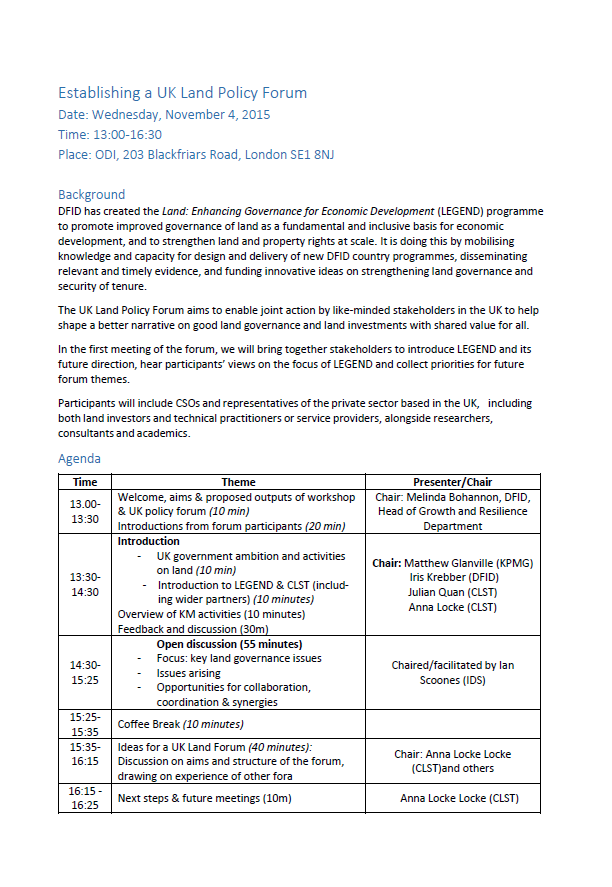The Overseas Development Institute (ODI) is the UK's leading independent think tank on international development and humanitarian issues.
Mission
Our mission is to inspire and inform policy and practice which lead to the reduction of poverty, the alleviation of suffering and the achievement of sustainable livelihoods in developing countries.
We do this by locking together high quality applied research, practical policy advice, and policy-focused dissemination and debate.
We work with partners in the public and private sectors, in both developing and developed countries.
Values
- Independence: ODI’s research, public affairs and policy advice are independent from its funders, and staff are able to challenge donor thinking and policy and the wider development consensus.
- High quality: Best practice, innovative approaches and continuous improvement are ensured in research, policy advice and public affairs.
- Fairness, diversity and equality: All staff and partners are treated fairly and with respect. ODI employment, disciplines and processes are appropriate for an institute focused on international development.
- Working together: There is continuous effort to foster better relationships throughout the organisation.
- Transparency and accountability: There is open reporting on the use of public funds, with full communication of our work to our donors, research subjects and partners.
- Sustainability: Resources are used in a sustainable way that reflects consciousness of the impact on the environment. The organisation works in a way that is sustainable, backed by commitment to its long-term viability.
Members:
Resources
Displaying 61 - 65 of 111UK Land Policy Forum 1 agenda
This is the agenda of the UK Land Policy Forum meeting held on 4 November 2015.
The urban-rural water interface: a preliminary study in Burkina Faso
Decisions on water allocation and infrastructure lie at the heart of development planning in semi-arid lands. On paper, the laws and policies of Burkina Faso accord equal entitlement to drinking water for the residents of cities and the residents of small towns and villages.
In practice, Ouagadougou’s status as economic and administrative capital gives it much greater power to plan for and mobilise investment for its own water supplies. The Ziga project (in two phases) has been designed to secure bulk water supply for Ouagadougou until 2030.
Topic guide: Land. Evidence on demand
This Topic Guide covers: the trends in and drivers of large-scale land acquisition, and the associated costs, risks and benefits; the provision of and access to more accurate data on large-scale land acquisitions, and key international and regional initiatives to provide guidelines to enhance security of tenure and promote good quality investment; land reform issues such as land tenure regularisation and land administration systems; and land issues in the context of fragile states, and conflict and post-conflict situations.
An analysis of power dynamics within innovation platforms for natural resource management
Innovation systems thinking is increasingly influencing approaches to sustainable agricultural development in developing world contexts. This represents a shift away from technology transfer towards recognition that agricultural change entails complex interactions among multiple actors and a range of technical, social and institutional factors. One option for practically applying innovation systems thinking involves the establishment of innovation platforms (IPs).






